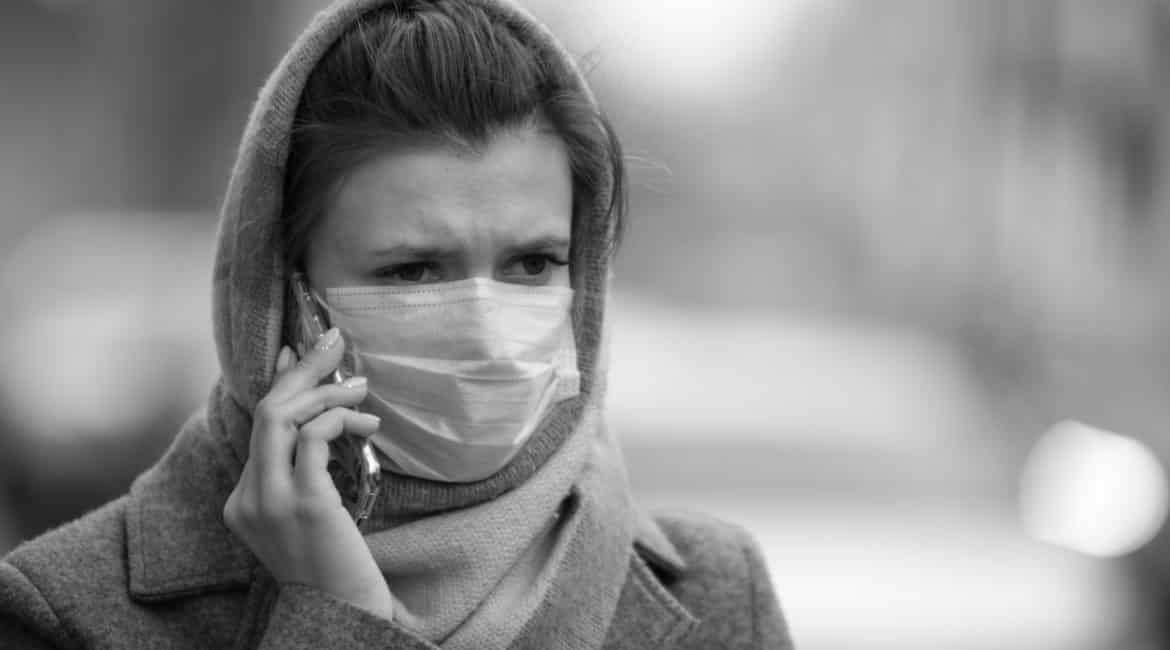How to treat face mask breakouts and how to prevent them?
In an effort to prevent the spread of COVID-19, putting on protective face mask has become mandatory for everyone heading out. With the impending ease of measures coming up, more people will be heading back to work and gradually returning to a semblance of normalcy. Face masks will become a regular part of our lives for a while. Breakouts and pimples caused by acne is so common that they even have a cute little name for it – “Maskne“.
Contents
What causes mask acne or “maskne”?
When you are talking and breathing into a mask, there is a lot of heat and humidity that builds up between your mouth and the mask. This also alters the pH of your skin, providing the perfect environment for acne causing bacteria and yeast to overgrow and cause a breakout. Furthermore, constant irritation from physical abrasion of the mask onto the skin can cause the skin to become more sensitive by damaging the outer protective layers of the skin, resulting in more inflammation and higher chances of developing pimples caused by face masks, also known as “maskne”.
Which kind of face mask is better?
You would know by now that the proper disposable surgical mask offers >99% BFE (Bacterial Filtration Efficiency). These masks are protective as they are ‘unbreathable’ air and droplets cannot get into or out of the mask. That means that they are also more ‘effective’ in creating best environments for bacterial and yeast overgrowth. Although they offer a better protection from the virus, they may cause more maskne than ‘breathable’ materials.
Reusable cloth masks do not offer the same kind of protection against the virus but they may in fact cause less irritation to the skin. However, an unwashed reusable mask can accumulate a lot of bacteria and germs that can cause mask acne.
What should I do to prevent pimples from face mask?
1. Keep your masks clean
If you are using disposable masks, they are meant to be DISPOSED. It is not advisable that you reuse them as it affects its effectiveness in preventing the virus and the buildup of bacteria can cause maskne. If you have sufficient supply, you should dispose your masks once they feel damp and not reuse them – that means that you should probably change your masks everytime you take it off for a meal. However, due to the scarcity of disposable masks, some infectious disease specialists in Singapore have mentioned that you may reuse it for days. They have also suggested that you could spray alcohol to ‘disinfect’ them. Alcohol is effective in killing off acne causing bacteria but they can also irritate the skin.
When you are choosing a cloth reusable mask, avoid clothes made of rough fabric and choose cotton ones as they are softer and more breathable. Make sure to thoroughly wash them daily with a gentle detergent that is dye-free and fragrance-free to avoid reintroducing more bacteria each time you rewear it.
2. Regular exfoliation
One of the best ways to prevent maskne is regular exfoliation to prevent clogged pores. Using products with gentle peels like low concentrations of salicylic acid, AHA, lactic acids can dissolve excess sebum and prevent accumulation of dead skin cells that clog pores.
3. Avoid make up
It is difficult to fully wash off makeup that traps in your reusable mask and you can potentially introduce more bacteria each time you reuse it. Besides, makeup tends to clog pores, especially in a moist and humid environment. Review your need to put on face makeup under a mask as most of it will not stay and serve its purpose to be seen. But if you MUST wear makeup, it is recommended that you use a light, oil-free and noncomedogenic foundation.
4. Hydrate your skin
Hydrating your skin helps to prevent your oil glands from overcompensating for skin dryness, which then leads to clogged pores. Look out products with anti-inflammatory effects such as Vitamin E and niacinamide. Ceramides, squalene and glycerin do feel a bit more greasy, but these ingredients help to form an extra protective lipid barrier between your skin and mask.
5. Selecting products
For all products that you use, non-comedogenic is key, which means non-pore clogging. Avoid products that are too harsh in treating your maskne, which can strip off the natural barriers of the skin, causing them to be more prone to inflammation. Try to watch out for other irritants containing fragrance, alcohol that may be hiding somewhere in the ingredient list.
6. Brush your teeth after every meal
This is a tip that I picked up from OT nurses, where maskne had long been discovered before Covid-19. As bacteria from our mouths builds up throughout the day, keeping your breath ‘clean’ minimises accumulation of bacteria in the confined space between the mask and our face. If brushing your teeth is not possible, a quick gargle with mouth wash would help too!
What should I do to treat mask acne?
1. Topical pimple treatments
Pimple treatments often require ‘drying’ up the pimple with harsh chemicals like benzoyl peroxide, while it may work for some people, over-exfoliation can trigger more breakouts. Gentle peels should be used with caution too. Excessively drying out the skin can result in more irritation, inflammation and compensatory overproduction of sebum, worsening maskne. I would strongly recommend trying out this highly-raved Alpha-ret as it is designed for sensitive skin with a slow-release mechanism combining two effective pimple treatments – AHA and retinoids. This product has an added function of anti-aging too. Antibacterial creams can help too. It is important that the topical pimple treatment is effective and not too harsh for your skin.
2. Aesthetic treatments
When topical treatments alone are not sufficient to manage the infection, you should consider consulting a doctor to seek additional treatments such as a professional chemical peel, or pulsed dye laser that could reduce redness and inflammation.
3. Oral medication
Your doctor may go on to prescribe you oral antibiotics or isotretinoin when the condition remains poorly controlled despite doing all the right things already. Oral medications would require a prescription from a certified doctor, who would be able to exhaust all other possible solutions and weigh out the risks and benefits before starting you on them.





